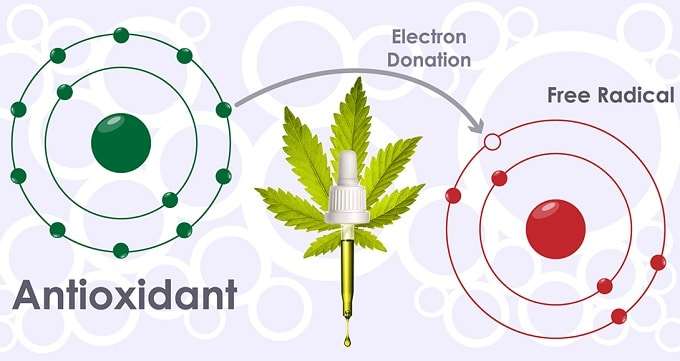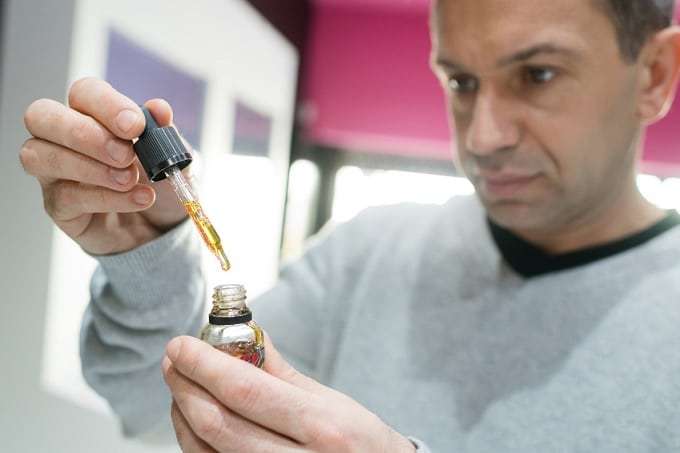The US Government filed a patent (Patent # 6630507) in 1999 for CBD.
If you do a google search for “Patent #6,630,507”, you will find a patent for cannabidiol and other cannabinoids titled: “Cannabinoids as Antioxidants and Neuroprotectants.”
In patent # 6630507, it is stated that:
“Cannabinoids have been found to have antioxidant properties, unrelated to NMDA receptor antagonism.
This new found property makes cannabinoids useful in the treatment and prophylaxis of wide variety of oxidation associated diseases, such as ischemic, age-related, inflammatory and autoimmune diseases.
The cannabinoids are found to have particular application as neuroprotectants, for example in limiting neurological damage following ischemic insults, such as stroke and trauma, or in the treatment of neurodegenerative diseases, such as Alzheimer’s disease, Parkinson’s disease and HIV dementia.
Nonpsychoactive cannabinoids, such as cannabidoil, are particularly advantageous to use because they avoid toxicity that is encountered with psychoactive cannabinoids at high doses useful in the method of the present invention.”
You may be wondering, why on earth is there a patent for CBD? Is that even possible?
Yes, it is possible. Here are 7 reasons why there is a patent for CBD.
#1. Studies Show CBD is Anti-Epileptic
Read: Is Using CBD Oil for Epilepsy Effective? The Latest Research

A doctor named O’Shaughnessy is famous for having tested cannabis for toxicity on goats and dogs.
Shown to be safe, he started giving cannabis to patients and was impressed with its muscle-relaxant, anticonvulsant, antiemetic, and analgesic properties.
Recently, the use of CBD as a treatment for epilepsy was popularized by Dr. Sanjay Gupta in his CNN Special Report: WEED.
The data from studies suggests that CBD is an effective anticonvulsant.
In addition, CBD has also demonstrated to enhance the anticonvulsant effects of other anticonvulsant drugs.
CBD has shown to be an effective treatment for childhood-onset treatment-resistant epilepsy.
In studies, CBD was thought to be responsible for decreasing frequency of seizures.
CBD, being an overall very safe treatment, has attracted the eyes and ears of many people and families trying to manage epilepsy.
CBD does not carry the negative side effects of many anti-seizure drugs. These side effects can be disturbing to kids and their families.
In a mother’s own words, this is the power of CBD: “Because of this medicine and these high CBD plants, we have our daughter back.”
#2. CBD Has Powerful Antioxidant Properties

An Australian team of researchers used CBD on mice suffering from memory loss.
The researchers found that the mice showed signs of regaining some cognitive function after taking CBD.
The researchers concluded that CBD may be useful in the treatment of neurodegenerative disorders.
You can read more about the study here:
Chronic cannabidiol treatment improves social and object recognition in double transgenic mice
#3. CBD Has Shown to Have Anti-Aging Properties
Free radicals are known to be responsible for aging and age-related illnesses.
The production of free radicals is promoted by inflammation. CBD combats inflammation in the body and in turn, aging, and age-related illnesses.
#4. CBD Has Shown to Improve Sleep Quality
Read: How Effective is CBD for Sleep?
Taking CBD before bed can indeed contribute to a better night’s sleep.
Taking CBD for sleep can improve your sleep without the nasty side effects of prescription sleep aids.
A study done on 15 subjects showed that CBD taken in doses ranging from 40 to 160 mgs helped to improve sleep.
40 to 160 mgs is the dosage recommendation previously suggested from the Mayo clinic on using CBD for sleep.
#5. CBD Has Shown to Have Anti-Anxiety Effects

Two separate studies demonstrated CBD to be effective at decreasing negative symptoms caused by Social Anxiety Disorder (SAD).
This study used neuroimaging to review the positive effects of administering 400 mg of CBD to people with SAD:
#6. CBD and Managing Chronic Pain
Read: Using CBD for Chronic Pain
CBD, working in conjunction with other phytocannabinoids and components found in cannabis (known as the “Entourage Effect”), has demonstrated efficacy in the treatment of various chronic pain conditions.
The strongest results were seen with treating neuropathic and inflammatory caused chronic pain.
CBD is a promising alternative treatment for chronic pain because it is non-addictive and does not produce any psychoactive effects for users (CBD doesn’t get you “high”).
CBD has been shown to be safe to use in high doses and has almost no negative side effects. See our next point.
#7. CBD is Safe and Has Minimal Side Effects
Read: Side Effects of Using CBD Oil Products
Studies show that there were no signs of toxicity or serious side effects experienced following chronic administration of CBD to healthy volunteers.
The was true even in doses of up to 700 mg per day of CBD. 700 mg per day of CBD is a very high dose.
To put it into perspective, some people have found CBD to be effective in doses of as little as 5 mg per day

